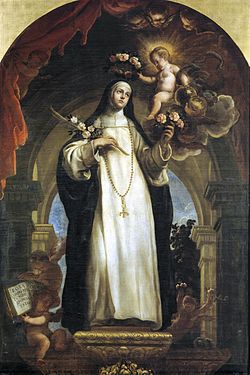 The Soul of the Rose by John William Waterhouse. | |
| Gender | Female |
|---|---|
| Origin | |
| Word/name | Germanic or Latin |
| Meaning | "fame-kind" or derived from the flower name. |
| Region of origin | Germanic countries (Germany, England, Scotland, the Netherlands, Scandinavian region) or Roman Empire (Latin) |
| Other names | |
| See also | Robert, Roger, Rudolph, Roland, Roderick, Rodney |

Rose is a female given name. It is a late Latin name derived from rosa, meaning "rose". Variants are Rosa, Rosario, Rosie, Rosalba, Rosalie, Rosalia, Rosina, Rosaria, Rosalyn and Rosalina. Similar names are Rosanna and Rosamunde. It may be a short form of Rosemary, Roseanne and Rosemond.

